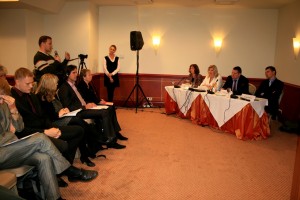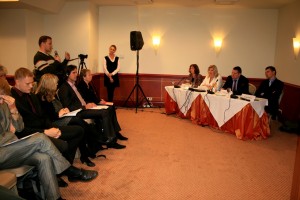
Education is of essential importance in the process of society integration, and it may form a united nation which, unfortunately, has not been done yet in Latvia. The divided education is not our success story, and a different solution should be considered in the future. These and the other opinions, related to the education system of Latvia, integration and unity of society, were expressed at the Conference “Education That Unites”, held this September 7, with the participation of experts and with the aim to initiate a professionals’ discussion on impact of uniform and divided system of education on society’s unity in a national state.
Representatives of various branches of science and prominent opinion leaders made their presentations at the Conference, including University of Latvia professor Dr. Ruta Inara Kanepeja, Executive director of Centre for East European Policy Studies (CEEPS) Andis Kudors, communications risk analyst Rita Naseniece, socio-linguist and Latvian parliamentary deputy Dr. Vineta Porina, lawyer Dmitry Trofimov and a pedagogue and publicist Ludmila Sochneva.
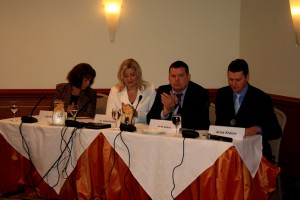
The world experience in development of uniform education system was presented by foreign experts: Berlin Free University professor Ulrikh Bruckner and Stockholm University Professor Emeritus Baiba Metuzale-Kangere. The Conference was opened by Latvian Minister of Culture Zaneta Jaunzeme-Grende.
While saying introductory words, World Federation of Free Latvians representative Dace Mazeika stressed that knowledge of language alone would not ensure loyalty to a country. To reach this objective, a joint content of education and fostering the patriotism are necessary. That would counter the pressure from Russia’s distorted information, Mazeika indicated.
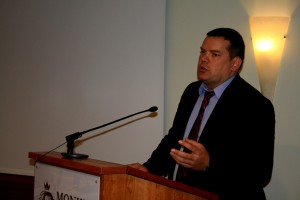
The Russia’s negative impact on the processes ongoing in Latvia, including education, was emphasized also by the CEEPS’s researcher Andis Kudors and socio-liguist Vineta Porina. Latvia is not a closed system where only internal elements are operating, borders do not play so significant role as they did some time ago. Modern technologies allow countries to influence situation in their neighbouring states, and it is done both unintentionally and intentionally, Kudors said, reminding that the huge influence of Russian media on Latvia is not just coincidence and commercial project, but it is a part of Russia’s foreign policy. According to the researcher, the main problem in this sphere lies in confronting values, sounded through Russian media, i.e., the Russian media are directed against EU and NATO while Latvia being the member country of these organizations.
Also V.Porina underlined the necessity to protect Latvian information space against Russia’s influence and called to take seriously the threats arising from Russia’s attempts to influence Latvia by soft power strategy and implementation of programmes for support of compatriots. Porina indicated that the minorities education in Latvia has not been successful because no people loyal to the country have been raised, thereby some other solutions should be found for the future education.
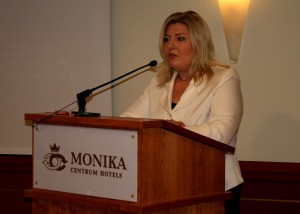
The linguist Baiba Metuzale-Kangere, taking the education systems of Australia and Sweden as the example, explained as follows: in order to form a united society, all schoolchildren have to gain a uniform education, and there are no obstacles to introduction of such also in Latvia. For example, nobody calls Sweden the ultranationalist state because education is offered there in a single language – Swedish. Just the opposite – it is considered in Sweden that people cannot be deprived of their human rights by not teaching them the local language and culture. It is done with the aim to integrate them more successfully in the local environment and not to split the society as it happens now in Latvia, according to Metuzale-Kangere.
In his turn, Dmitry Trofimov, leader of students’ corporation “Fraternita Arctica”, while speaking about the main objectives of education, underlined the socialization, education and upbringing, stressing that it is the upbringing that envisages teaching and development of particular values to raise the schoolchildren as patriots of their country. As long as only material things are the top priority for schoolchildren, we cannot expect from them any love towards their land and state.
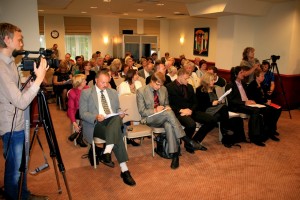
A number of proposals for improvement of education system and promotion of society’s unity were defined at the Conference. They, along with the video recording of the Conference, will be publicized in the nearest future.
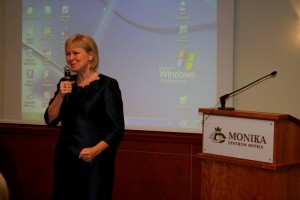
The Conference was supported by Latvian Ministry of Culture, World Federation of Free Latvians and Centre for East European Policy Studies. It was the event suggested by the Guidelines of National Identity, Civil Society and Integration Policy for 2012–2018 elaborated by the Ministry of Culture and cooperation partners.
